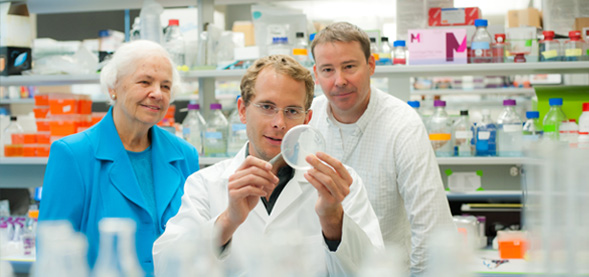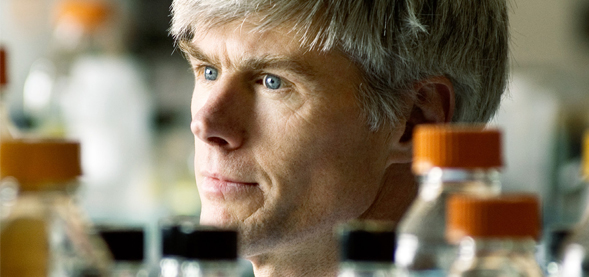| Bacterial Adaptation & Response Networks (BARN) |
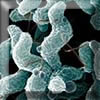 The common thread linking all of the group members is investigation of how bacteria adapt and respond to their environments. The environments studied are diverse, including such different examples as the human host for pathogenic bacteria and soil environments. The common thread linking all of the group members is investigation of how bacteria adapt and respond to their environments. The environments studied are diverse, including such different examples as the human host for pathogenic bacteria and soil environments. |
| Cardiovascular |
 The Cardiovascular Research Group is studying how the heart generates and maintains its regular beat, and controls its force of contraction. We study cardiovascular problems at multiple levels, ranging from high-resolution structures of individual proteins (X-ray crystallography), to functional studies at the protein level (electrophysiology), at the cellular level (cellular imaging), and the organism level (using genetic manipulation). The Cardiovascular Research Group is studying how the heart generates and maintains its regular beat, and controls its force of contraction. We study cardiovascular problems at multiple levels, ranging from high-resolution structures of individual proteins (X-ray crystallography), to functional studies at the protein level (electrophysiology), at the cellular level (cellular imaging), and the organism level (using genetic manipulation). |
| Chemical Biology of Disease (CBD) |
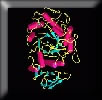 The objectives of this multi-disciplinary team is to collaborate to exploit every aspect of life sciences for – The identification of potential drug targets, assembly of natural product and synthetic libraries, novel high-throughput screening for inhibitors/modulators, analysis of biochemical and structural aspects of compound-target interactions, pharmacologic and genetic studies, and the elucidation of drug resistance mechanisms The objectives of this multi-disciplinary team is to collaborate to exploit every aspect of life sciences for – The identification of potential drug targets, assembly of natural product and synthetic libraries, novel high-throughput screening for inhibitors/modulators, analysis of biochemical and structural aspects of compound-target interactions, pharmacologic and genetic studies, and the elucidation of drug resistance mechanisms |
| Centre for Blood Research (CBR) |
 With over 40 multidisciplinary research groups, the CBR is the largest centre of its kind in the world. Scientists at the CBR are working together, using a broad range of leading-edge approaches to study blood and blood-related processes to improve health. With over 40 multidisciplinary research groups, the CBR is the largest centre of its kind in the world. Scientists at the CBR are working together, using a broad range of leading-edge approaches to study blood and blood-related processes to improve health. |
| Cell & Developmental Biology (CELL) |
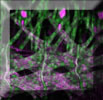 The Cell and Developmental Biology (CELL) research group focuses on how cells integrate signals and develop into complex multicellular organisms and tissues. The sequencing of the human genome has generated a ‘parts list’ that members of the CELL Research Group are using to construct cellular networks that underpin tissue structure and function. The Cell and Developmental Biology (CELL) research group focuses on how cells integrate signals and develop into complex multicellular organisms and tissues. The sequencing of the human genome has generated a ‘parts list’ that members of the CELL Research Group are using to construct cellular networks that underpin tissue structure and function. |
| Diabetes |
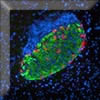 The research in the LSI Diabetes group aims to understand and treat multiple forms of diabetes including, type 1 diabetes, type 2 diabetes and conditions associated with these diseases. Our scientists are working on projects focused on the fundemental causes of diabetes as well as novel strategies for treatment. The research in the LSI Diabetes group aims to understand and treat multiple forms of diabetes including, type 1 diabetes, type 2 diabetes and conditions associated with these diseases. Our scientists are working on projects focused on the fundemental causes of diabetes as well as novel strategies for treatment. |
| Immunity, Inflammation and Infection (I3) |
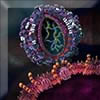 LSI researchers study infectious agents, how they cause disease and how our body fights infection. Diseases affected by this research include viral infections such as SARS, HIV, influenza, Hepatitis C and West Nile Virus. LSI researchers study infectious agents, how they cause disease and how our body fights infection. Diseases affected by this research include viral infections such as SARS, HIV, influenza, Hepatitis C and West Nile Virus. |
| Molecular Epigenetics (MEG) |
 The Molecular Epigenetics Group (MEG) of the Life Sciences Institute consists of 8 researchers from 3 departments with a common interest in epigenetic gene regulation. MEG researchers use yeast, Drosophila, mammalian cell lines and mice to address fundamental questions about the roles of DNA modification and chromatin structure in gene regulation during development. The Molecular Epigenetics Group (MEG) of the Life Sciences Institute consists of 8 researchers from 3 departments with a common interest in epigenetic gene regulation. MEG researchers use yeast, Drosophila, mammalian cell lines and mice to address fundamental questions about the roles of DNA modification and chromatin structure in gene regulation during development. |
| Neuroscience |
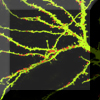 The mission of the Neuroscience Research Group is to understand how the nervous system develops and functions and how it is modified by injury, disease, genetics and environmental factors. The LSI research group includes investigators that study different levels of neural organization: molecular/cellular, systems/circuit, behavioral/cognitive The mission of the Neuroscience Research Group is to understand how the nervous system develops and functions and how it is modified by injury, disease, genetics and environmental factors. The LSI research group includes investigators that study different levels of neural organization: molecular/cellular, systems/circuit, behavioral/cognitive |
Last updated on January 28, 2013 @1:15 pm
 The common thread linking all of the group members is investigation of how bacteria adapt and respond to their environments. The environments studied are diverse, including such different examples as the human host for pathogenic bacteria and soil environments.
The common thread linking all of the group members is investigation of how bacteria adapt and respond to their environments. The environments studied are diverse, including such different examples as the human host for pathogenic bacteria and soil environments. The Cardiovascular Research Group is studying how the heart generates and maintains its regular beat, and controls its force of contraction. We study cardiovascular problems at multiple levels, ranging from high-resolution structures of individual proteins (X-ray crystallography), to functional studies at the protein level (electrophysiology), at the cellular level (cellular imaging), and the organism level (using genetic manipulation).
The Cardiovascular Research Group is studying how the heart generates and maintains its regular beat, and controls its force of contraction. We study cardiovascular problems at multiple levels, ranging from high-resolution structures of individual proteins (X-ray crystallography), to functional studies at the protein level (electrophysiology), at the cellular level (cellular imaging), and the organism level (using genetic manipulation). The objectives of this multi-disciplinary team is to collaborate to exploit every aspect of life sciences for – The identification of potential drug targets, assembly of natural product and synthetic libraries, novel high-throughput screening for inhibitors/modulators, analysis of biochemical and structural aspects of compound-target interactions, pharmacologic and genetic studies, and the elucidation of drug resistance mechanisms
The objectives of this multi-disciplinary team is to collaborate to exploit every aspect of life sciences for – The identification of potential drug targets, assembly of natural product and synthetic libraries, novel high-throughput screening for inhibitors/modulators, analysis of biochemical and structural aspects of compound-target interactions, pharmacologic and genetic studies, and the elucidation of drug resistance mechanisms With over 40 multidisciplinary research groups, the CBR is the largest centre of its kind in the world. Scientists at the CBR are working together, using a broad range of leading-edge approaches to study blood and blood-related processes to improve health.
With over 40 multidisciplinary research groups, the CBR is the largest centre of its kind in the world. Scientists at the CBR are working together, using a broad range of leading-edge approaches to study blood and blood-related processes to improve health. The Cell and Developmental Biology (CELL) research group focuses on how cells integrate signals and develop into complex multicellular organisms and tissues. The sequencing of the human genome has generated a ‘parts list’ that members of the CELL Research Group are using to construct cellular networks that underpin tissue structure and function.
The Cell and Developmental Biology (CELL) research group focuses on how cells integrate signals and develop into complex multicellular organisms and tissues. The sequencing of the human genome has generated a ‘parts list’ that members of the CELL Research Group are using to construct cellular networks that underpin tissue structure and function. The research in the LSI Diabetes group aims to understand and treat multiple forms of diabetes including, type 1 diabetes, type 2 diabetes and conditions associated with these diseases. Our scientists are working on projects focused on the fundemental causes of diabetes as well as novel strategies for treatment.
The research in the LSI Diabetes group aims to understand and treat multiple forms of diabetes including, type 1 diabetes, type 2 diabetes and conditions associated with these diseases. Our scientists are working on projects focused on the fundemental causes of diabetes as well as novel strategies for treatment. LSI researchers study infectious agents, how they cause disease and how our body fights infection. Diseases affected by this research include viral infections such as SARS, HIV, influenza, Hepatitis C and West Nile Virus.
LSI researchers study infectious agents, how they cause disease and how our body fights infection. Diseases affected by this research include viral infections such as SARS, HIV, influenza, Hepatitis C and West Nile Virus. The Molecular Epigenetics Group (MEG) of the Life Sciences Institute consists of 8 researchers from 3 departments with a common interest in epigenetic gene regulation. MEG researchers use yeast, Drosophila, mammalian cell lines and mice to address fundamental questions about the roles of DNA modification and chromatin structure in gene regulation during development.
The Molecular Epigenetics Group (MEG) of the Life Sciences Institute consists of 8 researchers from 3 departments with a common interest in epigenetic gene regulation. MEG researchers use yeast, Drosophila, mammalian cell lines and mice to address fundamental questions about the roles of DNA modification and chromatin structure in gene regulation during development. The mission of the Neuroscience Research Group is to understand how the nervous system develops and functions and how it is modified by injury, disease, genetics and environmental factors. The LSI research group includes investigators that study different levels of neural organization: molecular/cellular, systems/circuit, behavioral/cognitive
The mission of the Neuroscience Research Group is to understand how the nervous system develops and functions and how it is modified by injury, disease, genetics and environmental factors. The LSI research group includes investigators that study different levels of neural organization: molecular/cellular, systems/circuit, behavioral/cognitive
